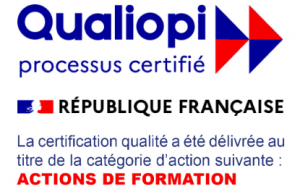- Home
- About Us
- Apprenants
- cours
- Tous les Modules
- Crash Course
- Intro to excel crash course
- Intro to Lean & Agile Project Management Frameworks
- Intro to Business Intelligence & Analytics
- Intro to English for Computing: Turbocharge Your Tech Talk!
- Ultimate TOEIC Prep Course Overview
- Scrum User Story Workshop
- Scrum User Story Mapping Workshop
- Intro to Business Intelligence & Analytics
- Introduction to R: Data Mining Workshop
- Intro to SQL
- Artificial Intelligence
- LLM/10 Introduction to LLMs and Prompt Engineering
- LLM/20 ADVANCED LLM Prompt Engineering
- DSCI 220 – Artificial Intelligence in Business
- Agentic AI for International Business
- MCP & n8n: Workflow Automation and API Integration
- AL/10 Artificial Learning Techniques
- Digital Strategies & Web Development
- Analytics and AnyLogic
- Robotics, LLM & Agentic AI for Supply Chain Management
- DSCI351 – Sports Analytics
- EXP/10 Multi-Source Data Extraction & Visualization
- Formations AGILES
- Agile Leadership
- AGL-130/ Design Thinking
- AGL-30/ Lean Startup and Business Model Canvas
- AGL-90/ DevOps
- AGL-100/ SAFe Essentials
- Introduction to SCRUM
- SCRUM Master
- SCRUM Product Owner
- AGL-230/ SCRUM Team and KANBAN
- AGL-120/ SCRUM Project Management – Gestion de projets avec Agile SCRUM
- SCRUM Team and KANBAN
- Lean Management and IT
- Technologie numérique
- SPE-20/ Operating Systems and Business Applications
- TID10/Intro to Business Intelligence & Analytics
- MKT-50/ Digital Analytics
- SD-20: Programmation en Python
- TID-40/ Big Data Monetisation
- TID-030/ Data Mining Workshop (R or Python)
- TID-020/ Introduction to Big Data architecture
- AGL-90/ DevOps
- SD-80: Mongo DB
- SD-70: Relational data base
- SPE-40/ Corporate IT Security Auditing / Audit et Sécurité Informatique en Entreprise
- CCS/NET Networks and End-User Support
- EXL-CORE/ Excel Workshop
- Cloud Computing
- Big Data Monetisation
- Data Mining Workshop
- Big Data architecture
- Corporate IT Security Auditing
- Corporate IT & Information Systems
- Management
- TID10/Intro to Business Intelligence & Analytics
- MKT-50/ Digital Analytics
- IRM-010/ IT Risk Management
- USI-010/ Enterprise Architecture
- AGL-130/ Design Thinking
- MKT-40 Customer Relationship Management
- MKT-10/ Introduction to Strategic Marketing
- MGT-30/ Organisational Analysis
- MKT-20/ International Marketing Strategy
- Economics and Business Models
- IBL/10: International Business Law
- Intro to Management and Organisations
- Organisational Analysis
- Enterprise Strategy
- Preparing for a Job Interview
- Conducting a Job Interview
- Communication
- Software Development
- Marketing
- Finance / Entreprenariat
- SPE-110 Introduction to Corporate Finance (CapEx & OpEx) & Reporting – Introduction à la finance d’entreprise (CapEx et OpEx) et au reporting
- INF-070/ Cybersecurity & Risk Management
- SPE-140/ IT & Digital Business Models / Informatique et Modèles Economiques du Numérique
- AGL-30/ Lean Startup and Business Model Canvas
- MGT-10/ Introduction to Economics and Business Models
- TID10/Intro to Business Intelligence & Analytics
- Lean Startup and Business Model Canvas
- EXL-CORE/ Excel Workshop
- MBA
- TOEIC Preparation
- Contact
Back
- Home
- About Us
- Apprenants
- cours
- Tous les Modules
- Crash Course
- Intro to excel crash course
- Intro to Lean & Agile Project Management Frameworks
- Intro to Business Intelligence & Analytics
- Intro to English for Computing: Turbocharge Your Tech Talk!
- Ultimate TOEIC Prep Course Overview
- Scrum User Story Workshop
- Scrum User Story Mapping Workshop
- Intro to Business Intelligence & Analytics
- Introduction to R: Data Mining Workshop
- Intro to SQL
- Artificial Intelligence
- LLM/10 Introduction to LLMs and Prompt Engineering
- LLM/20 ADVANCED LLM Prompt Engineering
- DSCI 220 – Artificial Intelligence in Business
- Agentic AI for International Business
- MCP & n8n: Workflow Automation and API Integration
- AL/10 Artificial Learning Techniques
- Digital Strategies & Web Development
- Analytics and AnyLogic
- Robotics, LLM & Agentic AI for Supply Chain Management
- DSCI351 – Sports Analytics
- EXP/10 Multi-Source Data Extraction & Visualization
- Formations AGILES
- Agile Leadership
- AGL-130/ Design Thinking
- AGL-30/ Lean Startup and Business Model Canvas
- AGL-90/ DevOps
- AGL-100/ SAFe Essentials
- Introduction to SCRUM
- SCRUM Master
- SCRUM Product Owner
- AGL-230/ SCRUM Team and KANBAN
- AGL-120/ SCRUM Project Management – Gestion de projets avec Agile SCRUM
- SCRUM Team and KANBAN
- Lean Management and IT
- Technologie numérique
- SPE-20/ Operating Systems and Business Applications
- TID10/Intro to Business Intelligence & Analytics
- MKT-50/ Digital Analytics
- SD-20: Programmation en Python
- TID-40/ Big Data Monetisation
- TID-030/ Data Mining Workshop (R or Python)
- TID-020/ Introduction to Big Data architecture
- AGL-90/ DevOps
- SD-80: Mongo DB
- SD-70: Relational data base
- SPE-40/ Corporate IT Security Auditing / Audit et Sécurité Informatique en Entreprise
- CCS/NET Networks and End-User Support
- EXL-CORE/ Excel Workshop
- Cloud Computing
- Big Data Monetisation
- Data Mining Workshop
- Big Data architecture
- Corporate IT Security Auditing
- Corporate IT & Information Systems
- Management
- TID10/Intro to Business Intelligence & Analytics
- MKT-50/ Digital Analytics
- IRM-010/ IT Risk Management
- USI-010/ Enterprise Architecture
- AGL-130/ Design Thinking
- MKT-40 Customer Relationship Management
- MKT-10/ Introduction to Strategic Marketing
- MGT-30/ Organisational Analysis
- MKT-20/ International Marketing Strategy
- Economics and Business Models
- IBL/10: International Business Law
- Intro to Management and Organisations
- Organisational Analysis
- Enterprise Strategy
- Preparing for a Job Interview
- Conducting a Job Interview
- Communication
- Software Development
- Marketing
- Finance / Entreprenariat
- SPE-110 Introduction to Corporate Finance (CapEx & OpEx) & Reporting – Introduction à la finance d’entreprise (CapEx et OpEx) et au reporting
- INF-070/ Cybersecurity & Risk Management
- SPE-140/ IT & Digital Business Models / Informatique et Modèles Economiques du Numérique
- AGL-30/ Lean Startup and Business Model Canvas
- MGT-10/ Introduction to Economics and Business Models
- TID10/Intro to Business Intelligence & Analytics
- Lean Startup and Business Model Canvas
- EXL-CORE/ Excel Workshop
- MBA
- TOEIC Preparation
- Contact







